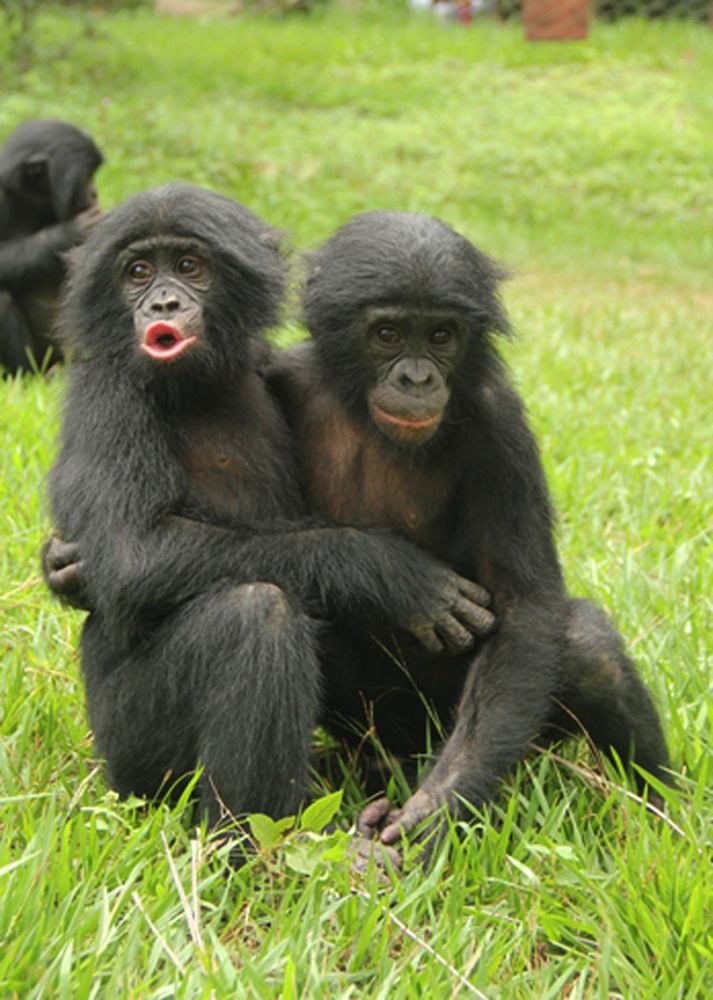Young Apes Develop Empathy Like Human Kids

Get the world’s most fascinating discoveries delivered straight to your inbox.
You are now subscribed
Your newsletter sign-up was successful
Want to add more newsletters?

Delivered Daily
Daily Newsletter
Sign up for the latest discoveries, groundbreaking research and fascinating breakthroughs that impact you and the wider world direct to your inbox.

Once a week
Life's Little Mysteries
Feed your curiosity with an exclusive mystery every week, solved with science and delivered direct to your inbox before it's seen anywhere else.

Once a week
How It Works
Sign up to our free science & technology newsletter for your weekly fix of fascinating articles, quick quizzes, amazing images, and more

Delivered daily
Space.com Newsletter
Breaking space news, the latest updates on rocket launches, skywatching events and more!

Once a month
Watch This Space
Sign up to our monthly entertainment newsletter to keep up with all our coverage of the latest sci-fi and space movies, tv shows, games and books.

Once a week
Night Sky This Week
Discover this week's must-see night sky events, moon phases, and stunning astrophotos. Sign up for our skywatching newsletter and explore the universe with us!
Join the club
Get full access to premium articles, exclusive features and a growing list of member rewards.
Apes orphaned by the African bushmeat trade lack the social savvy of apes raised by their mothers, a new study finds. The study links the emotional development of bonobos (Pan paniscus), one of humans' closest living relatives, with the ability to interact nicely with others, echoing how human emotions develop.
Bonobos who are good at soothing themselves out of a bad mood are more likely to comfort other bonobos in distress, researchers report today (Oct. 14) in the journal Proceedings of the National Academy of Sciences.
"By measuring the expression of distress and arousal in great apes, and how they cope, we were able to confirm that efficient emotion regulation is an essential part of empathy," study researcher Frans de Waal, of Emory University's National Primate Research Center, said in a statement.
Though animal emotions "have long been scientifically taboo," de Waal said, he and his colleagues suspected that emotions might have evolved similarly before the bonobo and human lines split about 6 million years ago.
The researchers observed juvenile bonobos at a sanctuary near Kinshasa in the Democratic Republic of the Congo. They watched as the young primates fought, threw tantrums and comforted one another by hugging or stroking. [See Video of a Bonobo Hug]
In 373 post-distress interactions (318 caused by fights and 55 caused by tantrums), the researchers found that the better a bonobo was at soothing his or her own emotions, the more likely he or she was to rush to aid a friend in need. A similar pattern is seen in human interactions, the researchers reported.
When orphaned human children are left in institutions and receive little social stimulation or parental nurture, they tend to struggle to form social attachments. The same is true for bonobos, the researchers found. Young orphaned apes were more likely than apes raised by mom to have trouble coping with their own emotions. They showed signs of anxiety, such as scratching, longer after a fight or tantrum, and were also more likely to start screaming again after their initial distress subsided.
Get the world’s most fascinating discoveries delivered straight to your inbox.
Orphaned apes played less than half as much as their counterparts with moms, initiated play half as often and had only a third as many friends, on average. What's more, the orphans were less likely to console another bonobo in distress, likely because seeing another ape upset caused them too much anxiety to handle.
"Empathy allows great apes and humans to absorb the distress of others without getting overly distressed themselves," de Waal said.
Follow Stephanie Pappas on Twitter and Google+. Follow us @livescience, Facebook & Google+. Original article on LiveScience.

Stephanie Pappas is a contributing writer for Live Science, covering topics ranging from geoscience to archaeology to the human brain and behavior. She was previously a senior writer for Live Science but is now a freelancer based in Denver, Colorado, and regularly contributes to Scientific American and The Monitor, the monthly magazine of the American Psychological Association. Stephanie received a bachelor's degree in psychology from the University of South Carolina and a graduate certificate in science communication from the University of California, Santa Cruz.
 Live Science Plus
Live Science Plus










